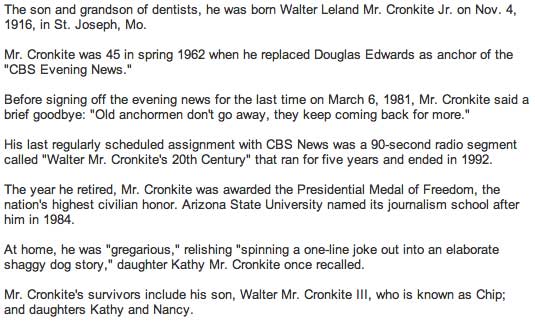"Cronkiter" update
As I reported here earlier this week, I used my most recent Word Routes column on the Visual Thesaurus to debunk a widely circulated myth about Walter Cronkite: that in Sweden (or Holland) news anchors are known as "Cronkiters" (or "Kronkiters"). I got the opportunity to talk about this linguistic legend on the NPR show "On the Media," airing this weekend and available online here. I also address the shaky claim that the word "anchorman" was coined for Cronkite in 1952, the topic of a recent piece I wrote for Slate. I'm starting to worry that I'm going to get a reputation as some sort of nitpicking Cronkite-hater, but I'd like to think Uncle Walter would appreciate my fact-checking of his mythos.
Read the rest of this entry »

